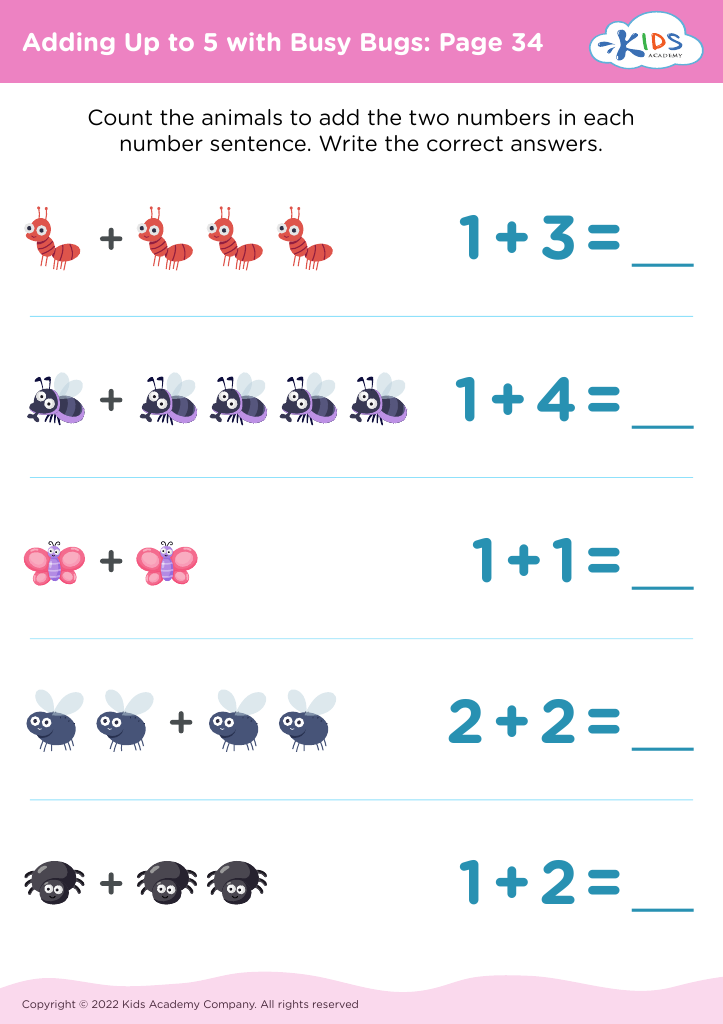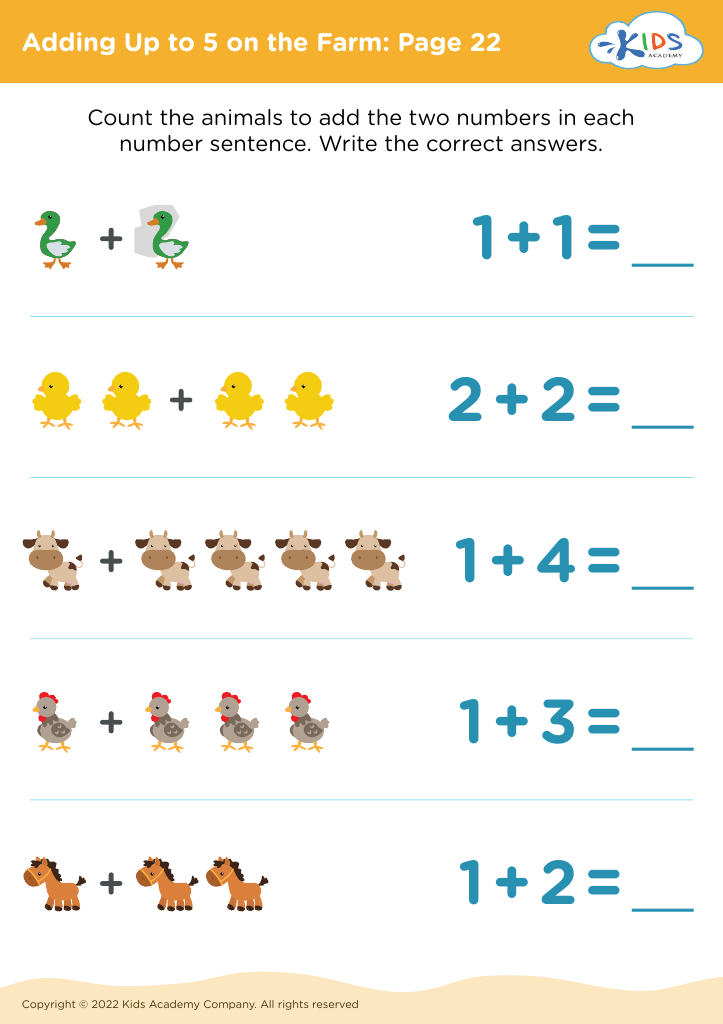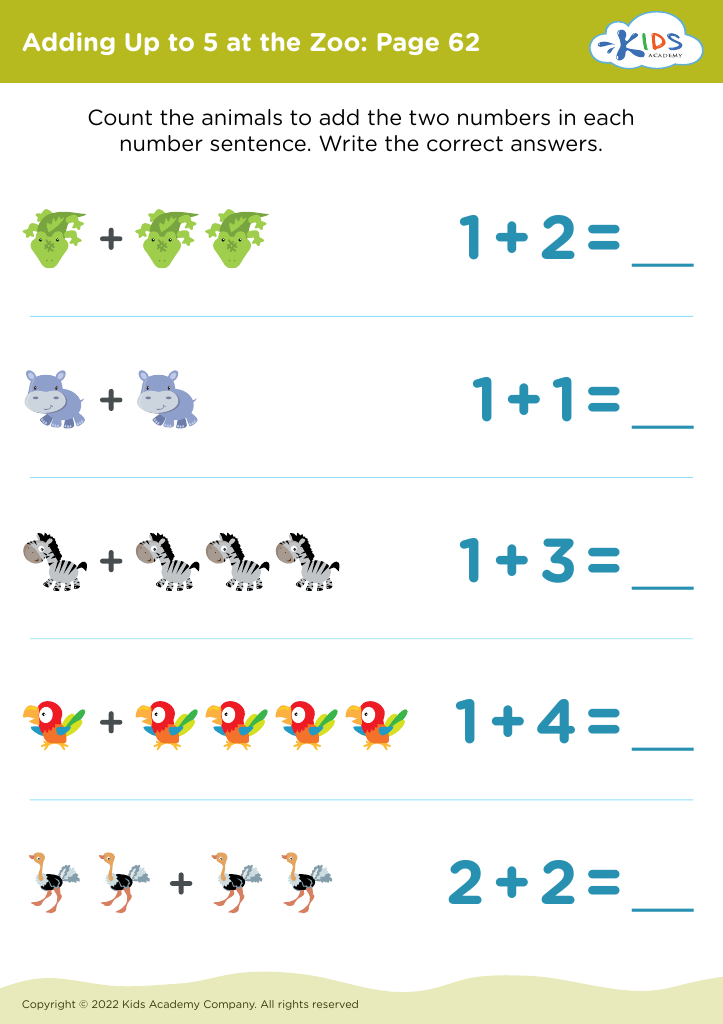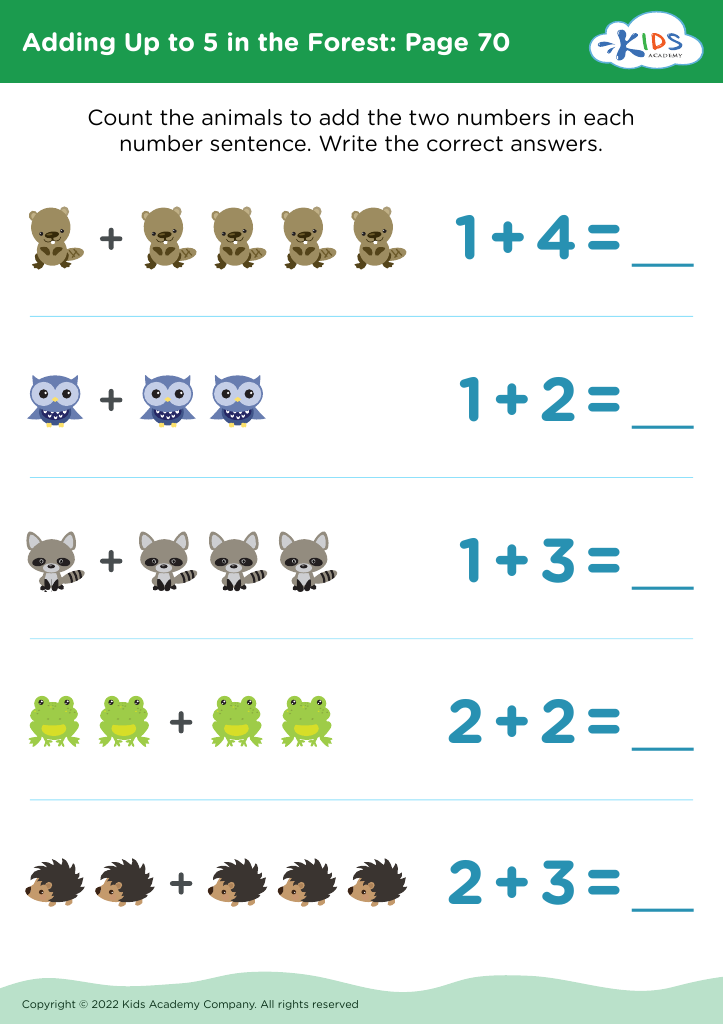Enhancing focus Addition Worksheets for Ages 5-8
4 filtered results
-
From - To
Enhance your child's focus and math skills with our engaging "Enhancing Focus Addition Worksheets" designed for kids aged 5-8. These carefully crafted worksheets aim to boost concentration through fun and interactive addition exercises. Incorporating vibrant visuals and relatable themes, our resources make learning enjoyable while promoting essential focus-building techniques. As young learners practice and solve, they not only improve their addition skills but also develop the ability to concentrate on tasks. Perfect for parents and educators looking to create a fulfilling learning experience, these worksheets are a valuable addition to any math curriculum. Unlock your child's potential today!
Enhancing focus in addition skills for children aged 5-8 is crucial for their overall academic development and future success. At this age, children are developing foundational mathematical understanding, and strong addition skills serve as the building blocks for more complex mathematical concepts. When parents and teachers prioritize focused addition practice, they not only help students strengthen their computation skills but also enhance their overall concentration levels. This focus can improve their ability to tackle various subjects beyond math, as strong cognitive abilities are linked to successful learning outcomes across disciplines.
Moreover, refining addition skills during these formative years fosters confidence and motivation in students. When children feel competent at solving basic problems, they are more likely to engage positively with learning environments. It encourages a growth mindset, helping them understand that practice leads to improvement. Additionally, by using interactive and fun methods to teach addition, educators can captivate students' attention, making math enjoyable rather than intimidating. Ultimately, enhancing focus in foundational math skills not only equips children with essential skills they will use throughout their education but also nurtures a positive attitude towards learning that can last a lifetime.





















